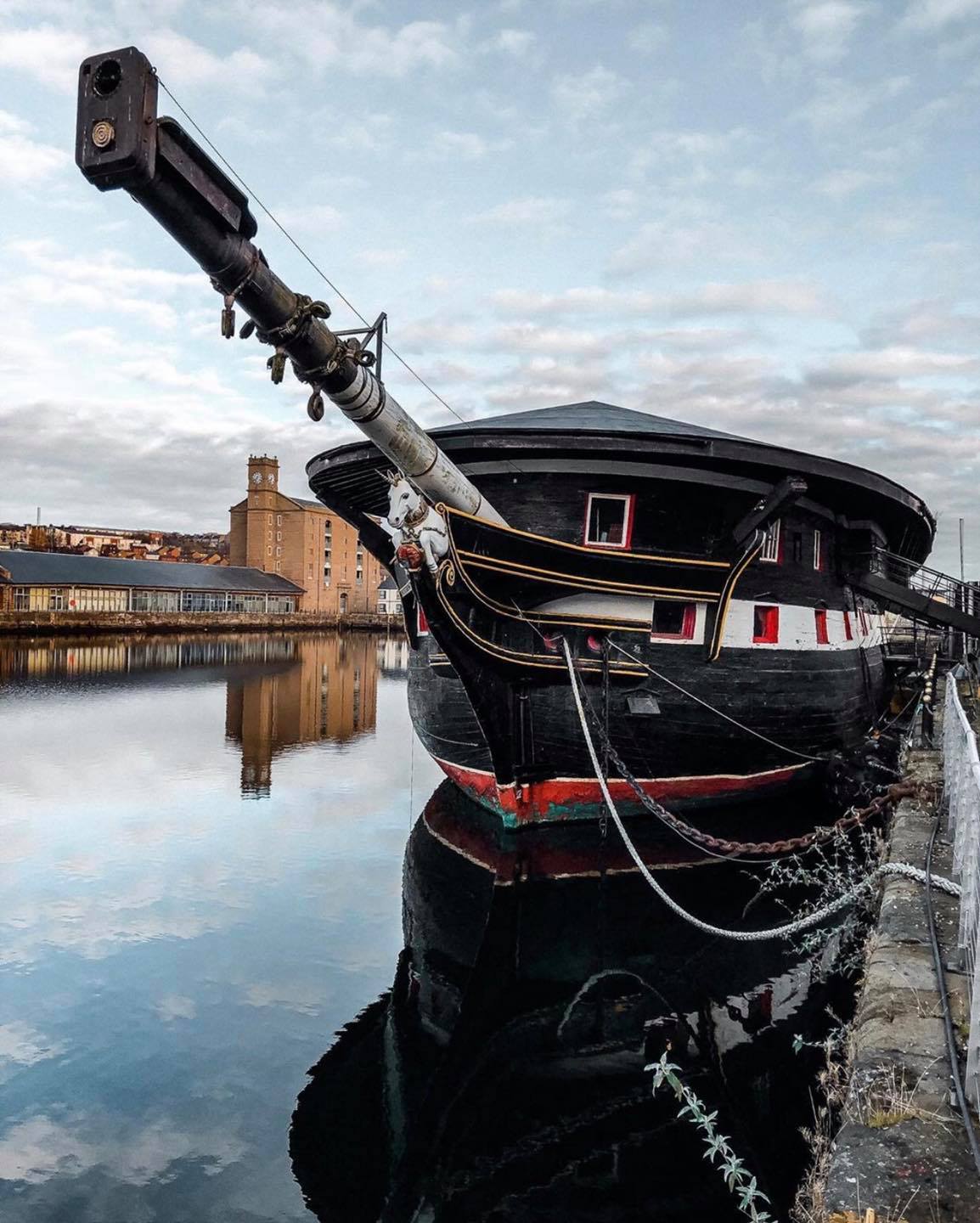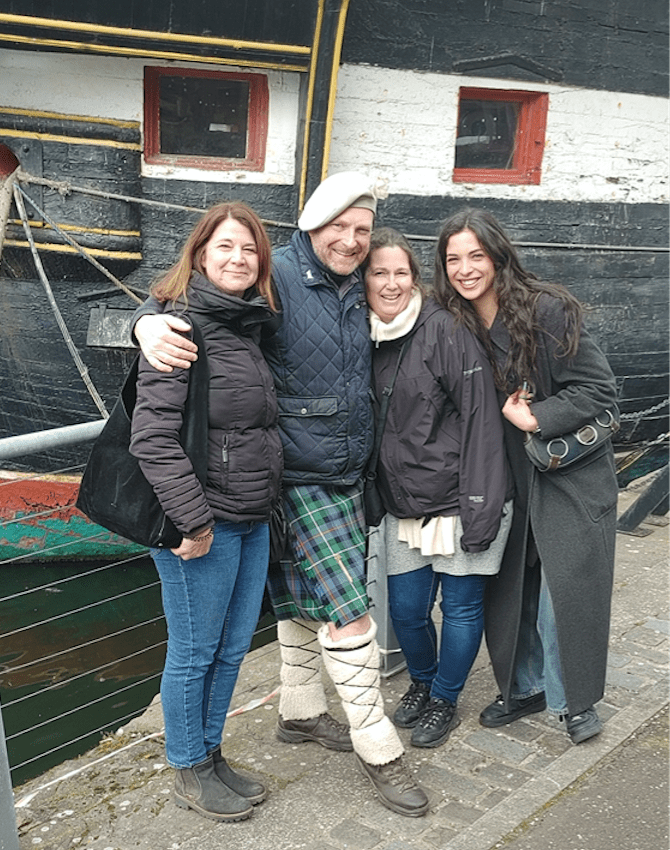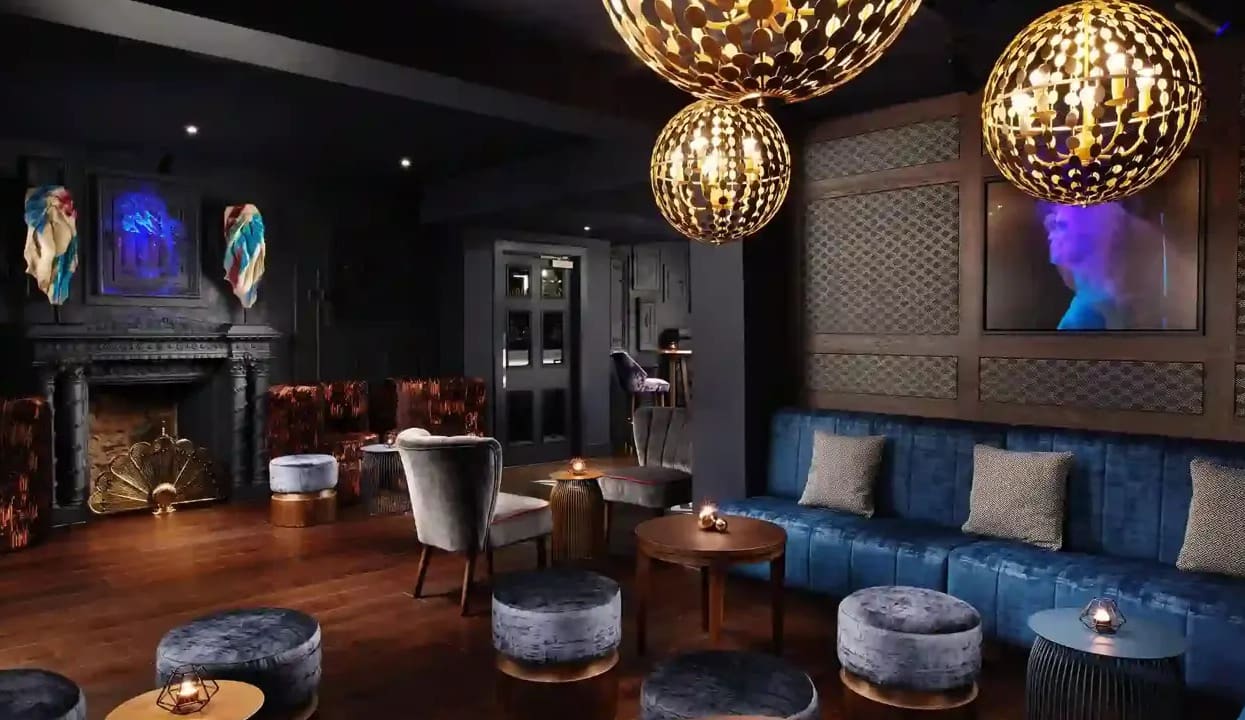Unicorn has largely been idle since its launch
IAN STALKER
British naval vessel HMS Unicorn has clearly stood the test of time, rarely weighing its anchor while doing so. The wooden sailing vessel is now permanently docked in Dundee, Scotland, serving as a floating museum for those wanting to get a look at the naval life of yesteryear.
The Unicorn is the oldest ship in Scotland that’s still afloat and one of the six oldest in the world continuing to rest on water. “We’re pretty ancient,” the Unicorn’s Matthew Moran says in something of an understatement.
The Unicorn was a frigate, a type of vessel Moran says was particularly swift and amounted to the “workhorse of the Royal Navy.” Launched in southeastern England in 1824, it became obsolete as a fighting vessel in that century following the rise of ironclad ships and steam engines, and was towed to coastal Dundee in 1873, where it has remained since.

But Moran says that its hardly taking to sea doesn’t mean it has had a colourful history, citing among other things a role it played at the end of World War II. “This is the only wooden ship in the world to receive a surrender from a submarine,” Moran says, adding a picture of the German skipper who surrendered to a British officer on the Unicorn had the German holding his head after bumping it while on the low-ceilinged vessel.
For a while in the 20th century the Unicorn had to share its name with an aircraft carrier, leading to the Unicorn being renamed the Cressy in 1941 and then reclaiming its original name in 1959. The Unicorn also had a long stint being used to train members of British naval reserves. Those who tour the Unicorn’s different decks will see the spacious captain’s cabin, below-deck hammocks used by other sailors and cannons, with the largest being fibreglass replicas. The vessel also has a unicorn figurehead.

Moran adds that almost all of the wood is original, remarkable given its age. “A lot of people ask if it (the Unicorn) is a replica. It’s not. It’s an original ship.” Building a similar vessel today would be a challenge as the craftsmen needed would be hard to find, he adds.
Moran is clearly knowledgeable about naval warfare of the past, telling visitors that those who managed Unicorn-era warships would have tried to disable enemy vessels, rather than sink them as a captured ship could then be added to the conqueror’s own fleet.
Moran realizes that there are plenty of naval enthusiasts who won’t be able to visit the Unicorn but adds that there’s another relatively easy way of gaining insights about Britain’s seafaring past. “[The Russell Crowe Napoleonic-era Royal Navy movie] Master and Commander was very accurate, so if you don’t have a degree in maritime history watch that,” he suggests.
Checking in to the Malmaison Hotel

Dundee is also home to the Malmaison Hotel, a 91-room hotel that to some degree likes to march to the beat of its own drummer, with each guest unit having an image of Dennis the Menace, whose creator was from Dundee.
“With a mixture of historic character and modern flair, the property has all the facilities for a comfortable stay. Each stylishly furnished room has a private bathroom with a power shower, moody lighting and a flat-screen TV. The hotel has its own cozy brasserie and Josper Grill, open for lunch, dinner and Sunday Brunch. The hotel’s Malbar venue has a comprehensive list of classic and quirky cocktails, wines, ice cold beers and whiskys,” the hotel says.
“We dare to be different,” says front office manager Scott Mudie. “Malmaison is somewhere where you take your mistress. Our sister property is where you take your misses.”
More information can be found at malmaison.com.

















